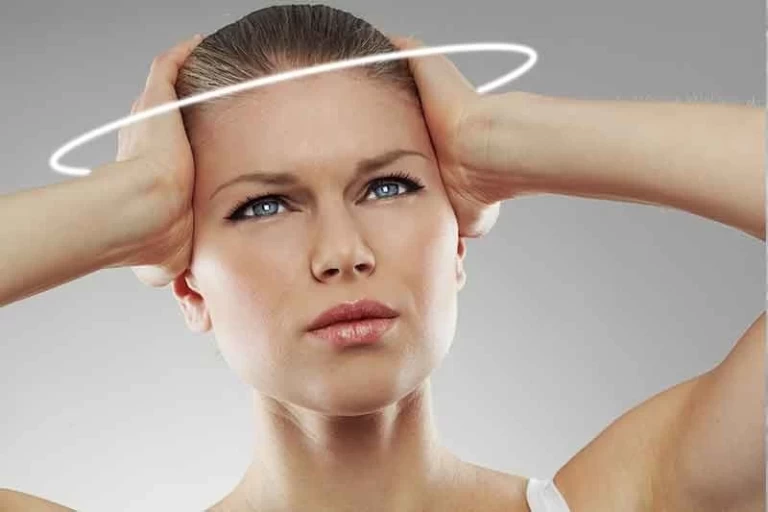
Dizziness – Round and round
What is Dizziness?
Dizziness is a misunderstood medical term. Every individual derives their own meaning from it. Dizziness basically describes a set of feelings and sensations which include being unbalanced, lightheaded, and woozy.
This indistinct medical term is a painless condition that is not a disease or disorder itself. In fact, it is a symptom of any underlying condition which is not always severe or chronic. Dizziness causes disorientation and often leads to fainting.
Since the balance and orientation of our body are maintained by a system comprising of eyes, ears, brain, spinal cord, and legs therefore any slight damage can lead to dizziness. Dizziness is nothing to feel stressed about.
Occasionally it can happen however, if it happens frequently then it is necessary to give it the necessary attention. Most of the time there are several conditions mainly psychological or physiological which initiate a feeling of weakness and sickness.
Dizziness feels like a wave of loss of orientation for merely a few seconds. It is necessary to not mix it with vertigo which is the spinning of room and surrounding around you.
Difference between dizziness and vertigo
Nearly everyone considers these two terms to hold the same meaning. However, it is incorrect. There is a thin line of demarcation between the two terms.
Vertigo is a sensation in which a person experiences self-movement or the movement of the surroundings. Vertigo is actually is a spinning sensation. Vertigo offers a clockwise or counterclockwise spinning motion.
You can clearly interpret the spinning of every object around your head. Dizziness is about spatial disorientation.
There is a distortion where your balance does not feel right. In dizziness, there is a distortion but there is no spinning. Usually, people complain of being dizzy but they don’t realize what does being dizzy actually means.
What are the causes?
There is a long list of causes that lead to dizziness. Dizziness is a very common symptom. Nearly every other disease includes dizziness as a symptom. From psychological and physical trauma to circulatory problems and tumors, the cause can lie anywhere in between.
Most commonly, dizziness can occur due to damage to the vestibular system which includes eyes, ears, and sensory nerves.
Eyes detect the position of a body in space, ears detect gravity and the back-and-forth movement of the body and the nerves carry signals from these sensory inputs to the brain to process the information.
Any damage to any part of this system can introduce a person to dizziness. Moreover, in maximum cases, dizziness is coupled with vertigo. The cause of vertigo is the cause of dizziness. Here the causes mainly include Meniere’s disease, Benign Paroxysmal Positional Vertigo (BPPV), infection of the middle ear, and migraine.
Circulatory problems that also cause dizziness include poor circulation and sudden drop in blood pressure. In these conditions, there is insufficient blood supply to the brain due to which the brain is unable to function properly hence causing dizziness.
Improper diet, disturbed sleeping routine, and even standing suddenly (orthostatic hypotension) cause disorientation. Other chronic conditions like ischemic heart attack, cardiomyopathy, and arrhythmia also cause dizziness.
Apart from all these conditions, any damage to the upper cervical spine by violence, wrong sleeping posture, sudden and frequent gym workout, and vehicle accident can cause dizziness. This cause seems to be quite common.
Most of the people are unable to realize how significant this cause is. Many people fail to identify the cause and let it stay for a long time span. When conditions worsen the dizziness also intensifies. Atlas and Axis which are the first and second cervical vertebrae exert pressure on the brain stem due to which dizziness occurs.
Who is at risk?
Although dizziness can affect individuals from all age groups yet the tendency of occurrence of spells of dizziness is higher in old people. In old age, people rely on several medicines for geriatric conditions.
Those medicines also contribute to is the occurrence of dizziness. Secondly, those individuals who confront dizziness in any stage of their life are more likely to confront a stronger spell of dizziness again in the near future.
Moreover, people who have been subjected to chronic stress are also at risk to develop frequent dizziness. Anxiety, stress, and depression appear to be the most critical risk factors of dizziness.
The Head feels heavy and the neck feels stiff. Shoulder and upper cervical spine feel uneasy and altogether they lead to dizziness. Additionally, those people who have been involved in vehicle accidents are also at high risk of developing dizziness.
Initially, they might not realize the critical importance of the damage in an accident but later, the results begin to appear in the form of continuous headaches and dizziness. It is possible the patient heals completely but the spell of dizziness appears later.
What are the symptoms?
By now you know that dizziness is itself a symptom and not a disease. Yet there also some symptoms associated with this symptom. When a person experiences dizziness they lose contact with everything going around them.
They are unable to speak anything properly. All the sounds from the surroundings become inaudible and the vision also becomes a blur. In this condition, a person is unable to stand properly and urges to sit or lie down.
Nausea and vomiting are commonly observed in this situation as the person feels sick. There is a drop in blood pressure and the mouth of the person becomes very dry.
Chiropractic care helps you get through it!
There are not one but multiple methods and techniques to cure dizziness with the help of chiropractic experts. As discussed earlier, any trauma to the cervical spine can cause transmission of wrong signals about orientation and position in space of body due to which dizziness occurs.
Fixing of faulty joints, realigning of slipped or misaligned cervical spine, and manipulation of cervical vertebrae take care of dizziness and don’t allow it to return.




Leave a comment